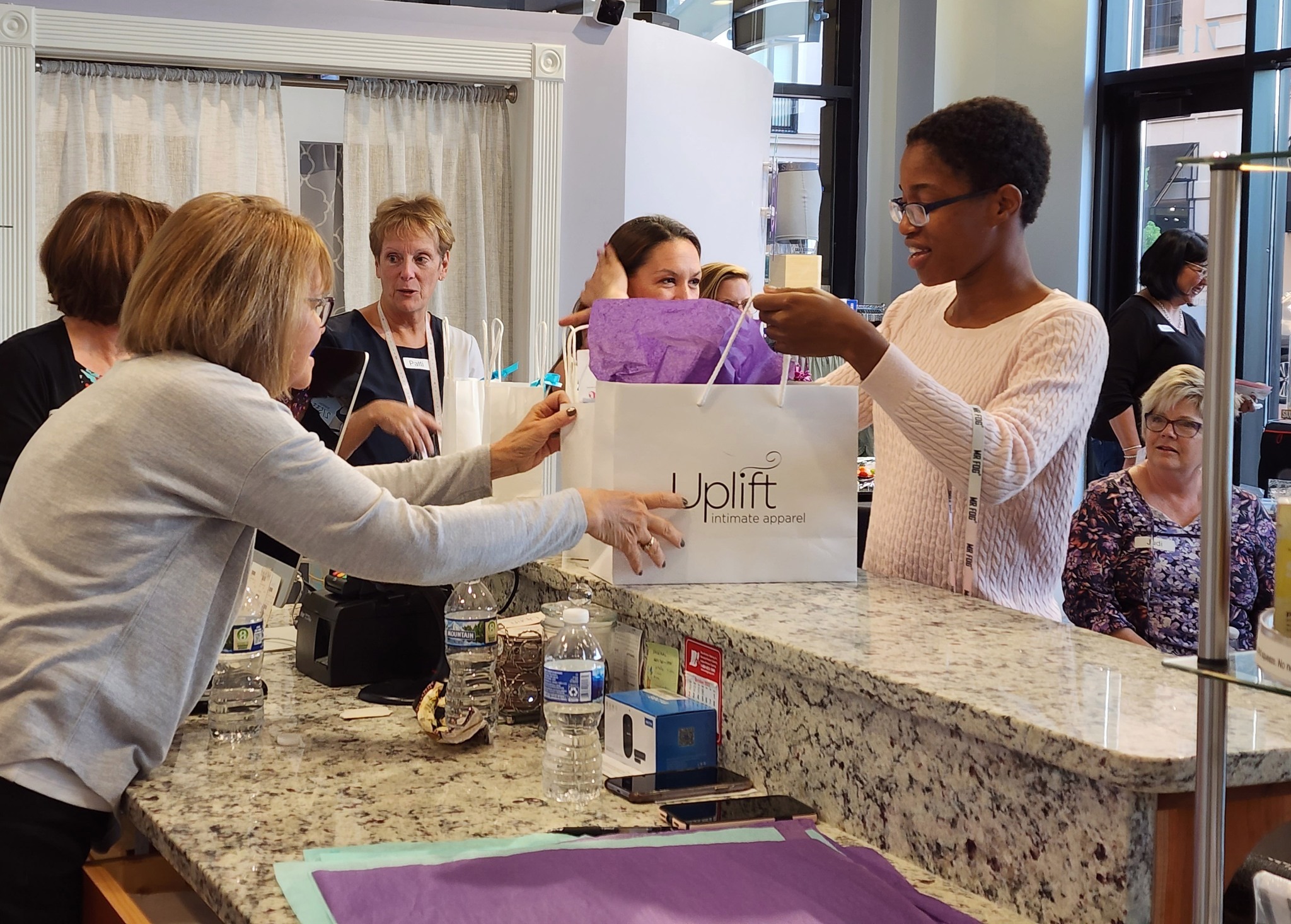As the holidays approach, there’s one word that
keeps jumping around in my head.
— KINDNESS —
We all know what kindness is, we all practice it, right? Perhaps you think of kindness as:
Service | Grace | Blessing | Heart | Care | Love | Understanding | Compassion
You’d be right with all of these. They are all attributes. It is more than behavior (the way one acts or conducts themselves). It’s a spirit of helpfulness, generosity, consideration, a quality that can be cultivated and it requires nothing in return.
Kindness:
- is grace & love in action.
- is acting/serving without expectation.
- is caring.
- means working to make interactions rich and meaningful – giving what is needed at that exact moment.
- requires nothing in return.
- requires one to reach out and take a risk.
- can be hard.
 Studies have been done and data exists showing kindness is as beneficial for the giver as the receiver. Displays of kindness in stressful situations have been found to keep one from being overrun by emotions. You could call it a buffer to stress, which is also good for your heart. Kindness increases longevity and boosts happiness. It can help to alleviate depression and anxiety and is good for cultivating a sense of social support. These are all powerful attributes.
Studies have been done and data exists showing kindness is as beneficial for the giver as the receiver. Displays of kindness in stressful situations have been found to keep one from being overrun by emotions. You could call it a buffer to stress, which is also good for your heart. Kindness increases longevity and boosts happiness. It can help to alleviate depression and anxiety and is good for cultivating a sense of social support. These are all powerful attributes.
However, there is something confusing about kindness. Kindness is NOT nice. Nice doesn’t ask much of us. It isn’t overly hard. It’s actually harmless, passive, safe. We can all be nice without spending too much energy, time, or giving much of ourselves. There are no risks. One can be nice while also being indifferent, critical. Being nice is all about being liked, not rocking the boat.
Kindness is NOT:
- ignoring mean spirited, wrong, ignorant, discrimination, etc.
- smooth sailing all the time.
- silence or even quiet.
- immoral.
- always easy or always hard.
- being nice.
Being nice involves being polite and pleasing to others expecting them to respond in a certain way. It selfishly avoids conflict or uncomfortable situations. Being nice can sometimes be more surface level and may involve putting on a pleasant façade that may or may not reflect one’s true feelings or intentions. Niceness doesn’t usually have a lasting impact or deep connection. It’s often lacking authenticity and/or not addressing underlying issues. We found this excellent description from Meditation Magazine:
The kind person is strong. The nice person is weak.
The kind person is selfless. The nice person is selfish.
The kind person feels empathy. The nice person is narcissistic.
The kind person is happy. The nice person does not know happiness.
Ultimately: The core of a “kind person” is love. The core of a “nice person” is fear.
 Dr. Dale Turner, author, speaker, theologian, was known to carry and hand out little green cards with two simple words printed on them: “Extend Yourself.” That simple phrase “Extend Yourself’ captures the essence of kindness. It also highlights the difference between niceness and kindness. One of my friends has raised her daughter, now 18, with the mandate “Be courageous and kind” (maybe a spinoff from Cinderella). In every interaction, every activity, every task, every conversation – with others and with yourself – Be courageous and Kind!
Dr. Dale Turner, author, speaker, theologian, was known to carry and hand out little green cards with two simple words printed on them: “Extend Yourself.” That simple phrase “Extend Yourself’ captures the essence of kindness. It also highlights the difference between niceness and kindness. One of my friends has raised her daughter, now 18, with the mandate “Be courageous and kind” (maybe a spinoff from Cinderella). In every interaction, every activity, every task, every conversation – with others and with yourself – Be courageous and Kind!
So now you get to decide; do you “Extend Yourself?” Are you “courageous and kind?” Do you take the risk to be “grace & love in action?”
In this season of gratitude, let’s also remember and practice the behavior of kindness.
Until we meet again behind the curtain …
— Carla
Fun Fact: Wednesday, November 13 is World Kindness Day. We’ve found several resources that are all about kindness. See below.
Note: Much of this came from an article written by Donna Cameron.